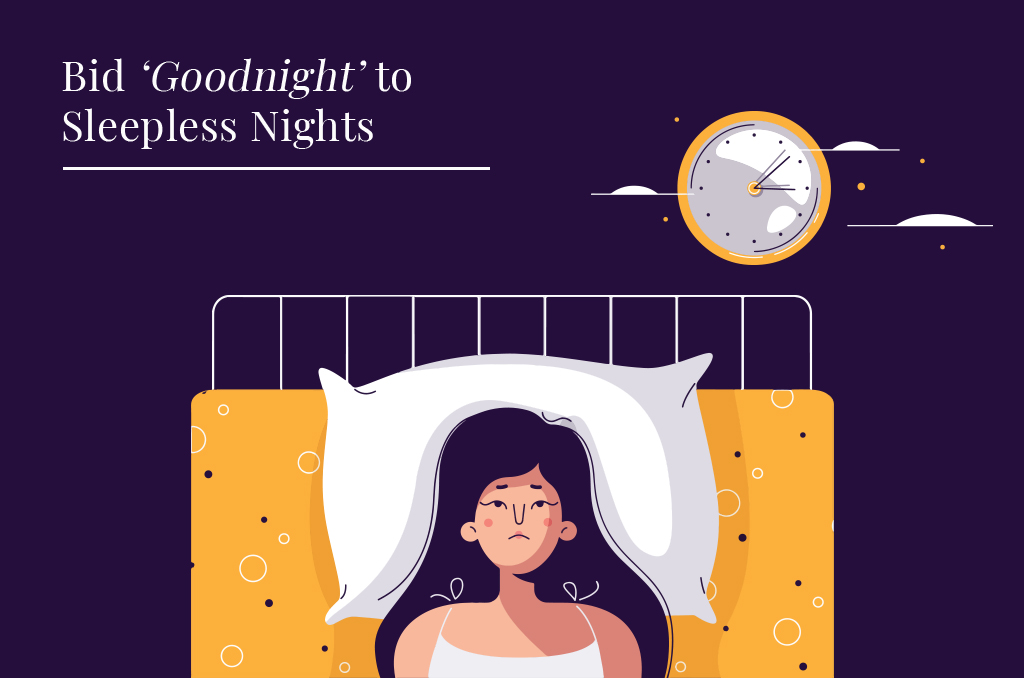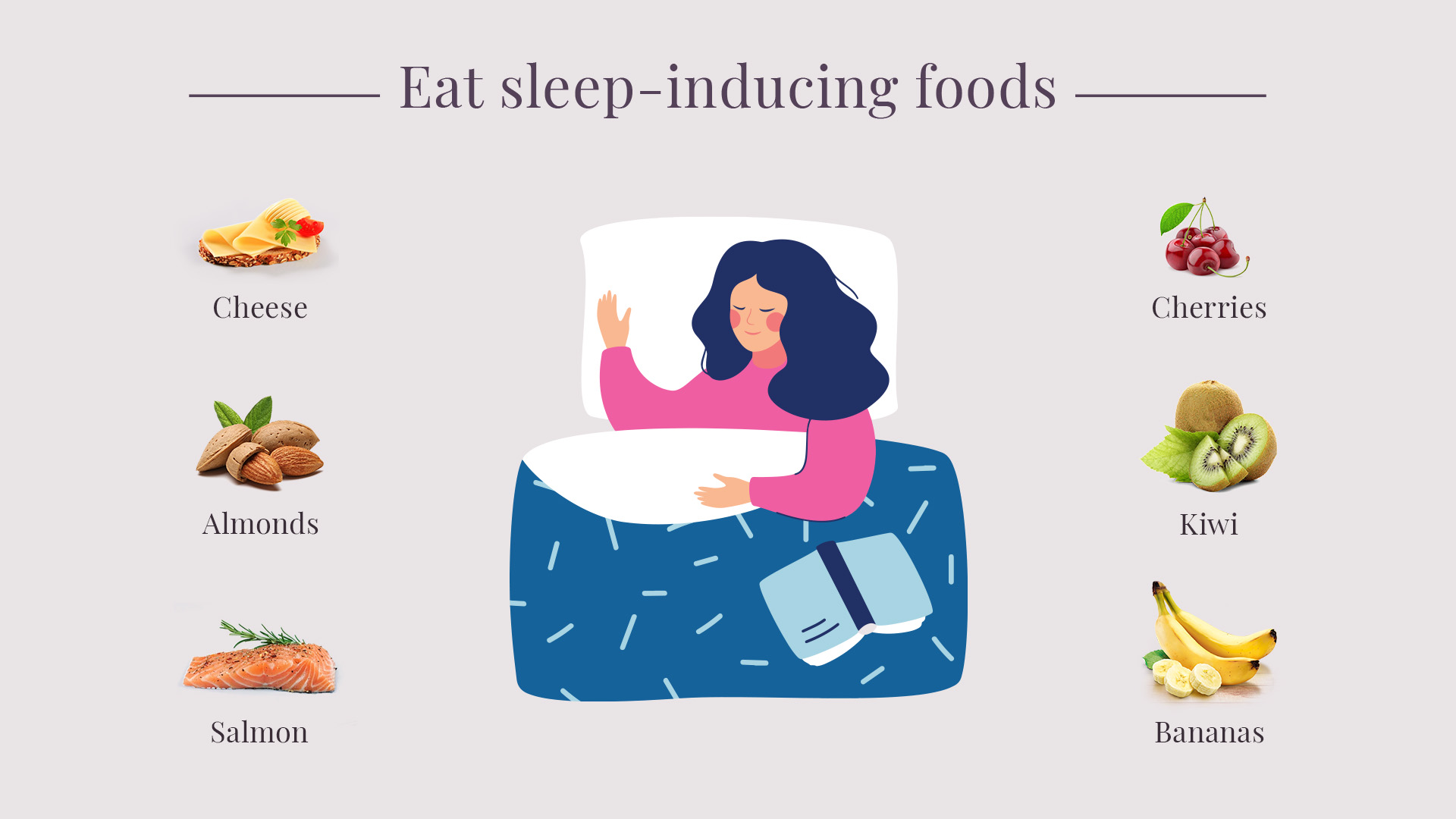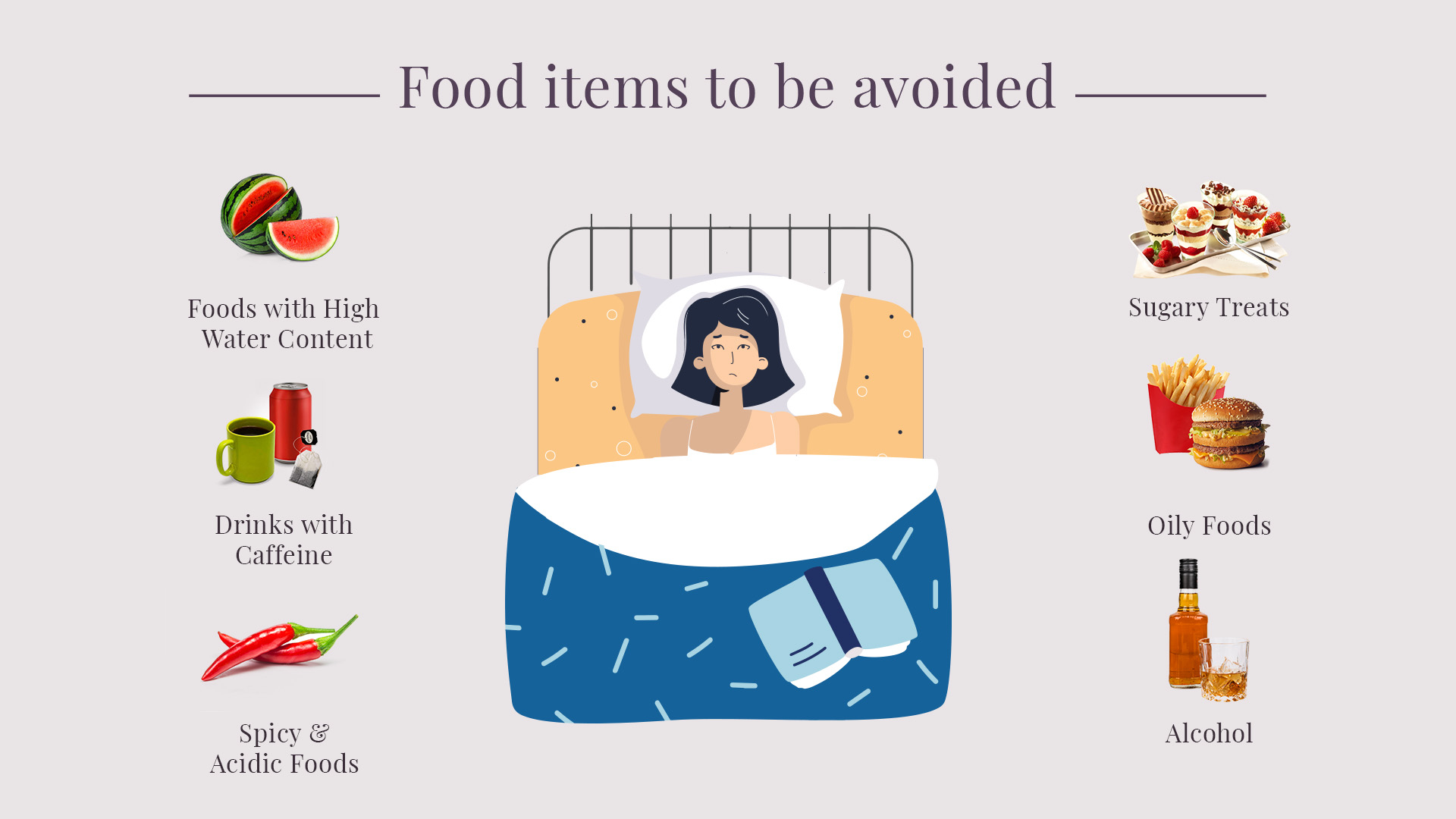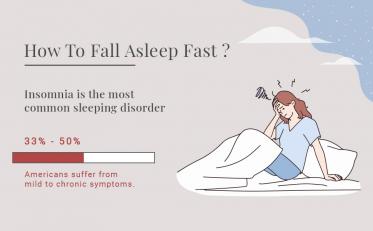Healthy Lifestyle Choices to Sleep Better

Your sleep quality is an important indicator of your health and overall well-being. If you don’t get quality sleep it can impact your day to day life. Most of us are running behind a hectic lifestyle. These hectic lifestyles result into sleep related problems.
You may be suffering from sleeping disorder if you;
- Find it difficult to fall asleep, and stay asleep
- Wake up from sleep not feeling refreshed
- Difficulty in concentrating
- Experience fatigue throughout the day
- Feel lethargic and sleepy in day time
- Feel mentally and physically unwell
- Find yourself anxious, moody and irritability in daytime
Don’t let restless sleep give way to insomnia or sleeping disorder as you can incorporate home remedies like foods that induce sleep, and take necessary precaution to take care of your sleep health.
Foods that help you sleep

Cheese: It is high in tryptophan, an amino acid that is required for the production of serotonin, a neurotransmitter that helps you relax and sleep.
Almonds: There are top health benefits of almonds such as calcium and magnesium. The experts believe that these two elements are essential for getting a good night's sleep.
Salmon: If you have enough omega-3 fatty acids in your body, you'll sleep better. Other omega-3-rich fish, such as tuna, sardines, or mackerel, can also help.
Turkey: Turkey is a good dish to eat before bed since it contains a lot of protein and tryptophan, both of which might make you tired.
Cherries:Consider having a bowl of cherries for dessert because they're the only dietary source of the sleep hormone melatonin. Plus, it also contains calcium, which aids in the regulation of melatonin production in the body.
Bananas:They are high in tryptophan and sleep-inducing carbs, as well as potassium and magnesium, which might assist with muscular relaxation.
Kiwi: A kiwi before bed is the best option to help you fall asleep faster and remain asleep longer. When eaten before bed, kiwis are high in serotonin and antioxidants, both of which may help you sleep better.
9 Food Items to be avoided before bedtime

Alcohol Although alcohol helps you doze off, it also disrupts your natural sleep cycle later in the night. It can negatively affect your ability to get restorative REM sleep. In addition, it can also make you snore louder and give you acid reflux later in the morning.
Oily Foods It takes longer for your stomach to digest heavier meals. It is possible to wake up in the middle of the night with indigestion if you consume fatty, cheesy, and fried foods. Avoid things like burgers, fries, fried foods, and large steaks late in the day.
Foods with High Water Content Your sleep can be disrupted if you have to get up to go to the bathroom. A healthy lifestyle includes adequate water consumption, but you want to avoid waking up in the middle of the night with a full bladder. Avoid food like celery, watermelon, and cucumbers.
Drinks with Caffeine The usual drinks such as Tea, Coffee, and other aerated soft drinks consist of caffeine. Try to avoid these drinks as they make it more difficult to slip into the deeper stages of sleep.
Sugary Treats Avoid eating overly sugary snacks that cause your blood sugar to spike, then crash. For this reason, sweet cereals, desserts, and candy are not appropriate night-time treats.
Spicy and Acidic FoodsSpicy dishes can lead to problems at night, it is normal for your body temperature to drop in order to facilitate sleep, however, hot peppers may increase it. Similarly, foods such as Citrus juice, raw onions, white wine, and tomato sauce can make heartburn worse, which can keep you awake at night.
Ambient temperature beneficial for sleep
After knowing about the best and worst food habits that affect your sleep schedule, there are some more minor but essential aspects that may help you in sleeping soundly at night. The room temperature of the sleeping space also affects the sleep of a person as a result of the extreme hot or cold temperature of the room. Keeping the bedroom temperature between 19°C to 24°C helps the body to relax and adjust to the moderate temperature of the room without making you feel extremely hot or cold.
Cotton Sheets and attire for the peaceful sleep
The fabric of your sleepwear and sheets is also a point to consider for a comfortable night’s sleep. The ideal fabric for uninterrupted sleep is cotton, as it inherits qualities like temperature regulation, high absorption and is also anti-static which will help you sleep better. Cotton also manages to keep the hot sleepers cool during the hot flashes at night which often is the reason for the sleep interruption at night.
Make exercise a priority

It is critical to be physically active in order to get a good night's sleep. Facts suggest that those who exercise regularly sleep better than those who suffer from chronic insomnia. Morning exercise's capacity to help balance secretory hormones, according to experts, helps manage blood pressure, which may lead to improved sleep. In addition to these exercises there are a few breathing and before bed exercises that help reduce the stress and lead to a great night’s sleep.
Exposure to sunlight for healthy sleep

The sun may wake you up in the morning, but it is also necessary for getting a good night's sleep. That's because your body uses natural light to determine what time it is and whether to produce energetic hormones or those that make you feel drowsy and calm, such as melatonin. The natural clock in your body, which is dictated by the 24-hour cycle of day and night, uses daylight to determine when you should be awake and when you should be tired. In addition to this include melatonin-rich foods in the diet such as eggs, milk, goji berries, and oats that focus on vital nutrients for better sleep.


 United States
United States United Kingdom
United Kingdom Canada
Canada Australia
Australia















